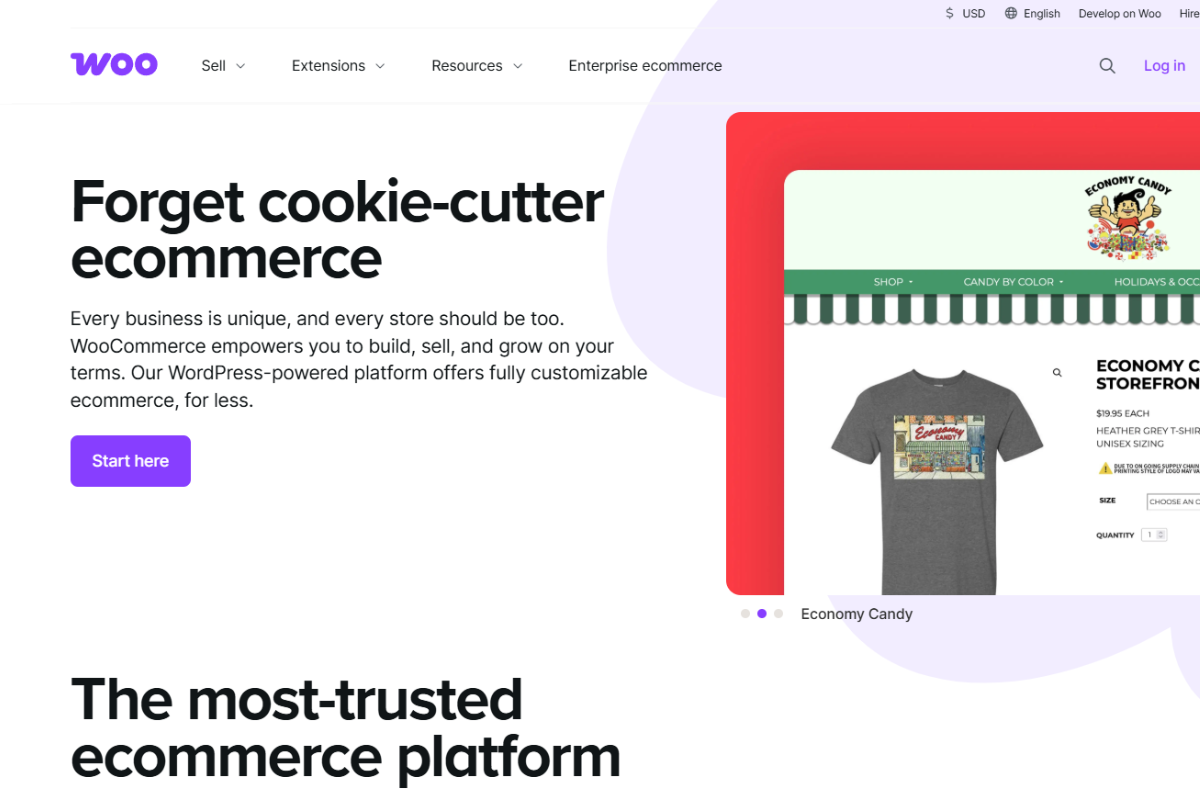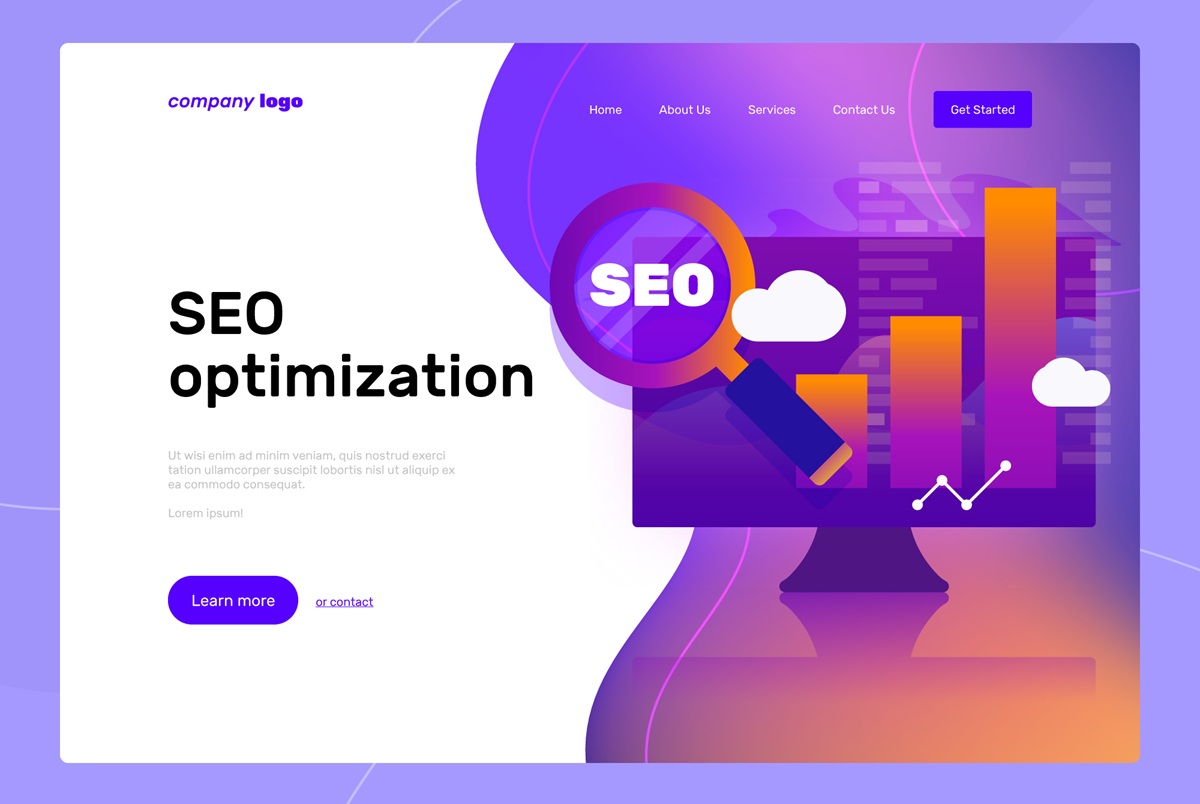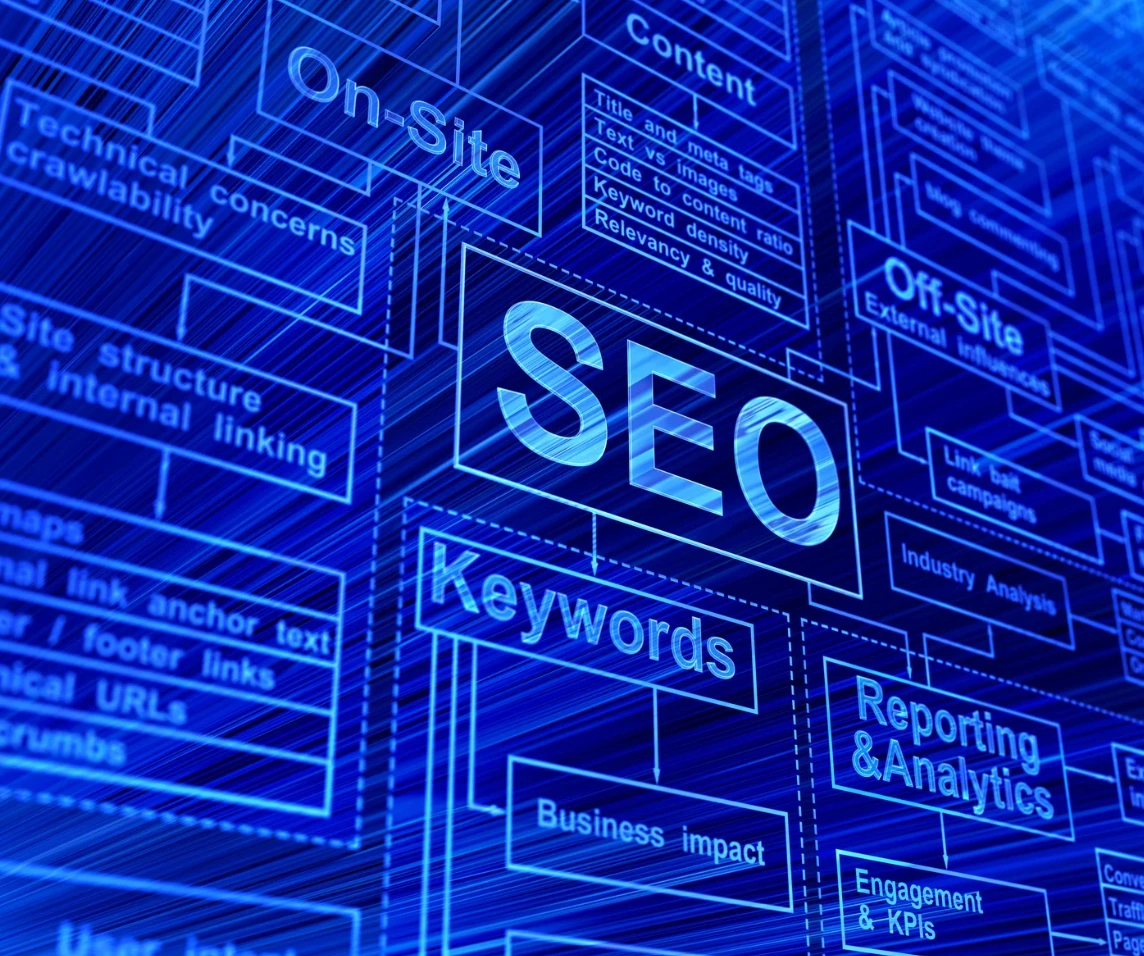Blog
Which Ecommerce Platform is Best for SEO: The Truth About SEO Capabilities vs Revenue Impact
.png)
Share
If you talk to ecommerce consultants about choosing the best ecommerce platform for SEO, almost everyone will tell you to pick the one with the most built-in SEO features.
Why?
Most people assume that having extensive SEO capabilities built into an e-commerce platform automatically translates to better search rankings and more organic revenue.
But here is the big fallacy ecommerce brands fall prey to: They think an SEO platform features equal SEO success. This results in brands choosing platforms based on feature checklists rather than what actually drives revenue from organic search.
In reality, we’ve helped ecommerce stores generate millions in organic revenue on platforms that supposedly have "weak SEO" while watching brands with "SEO-friendly" platforms struggle to rank for anything meaningful. The platform you choose matters far less than how you execute your ecommerce SEO strategy.
Let me break down what matters when selecting an ecommerce platform for SEO success.
The Real SEO Platform Hierarchy (Based on Revenue Outcomes)
After working with hundreds of ecommerce brands across every major platform, here’s how they actually stack up for SEO performance:
Tier 1: Maximum Revenue Potential
Shopify Plus & Custom Solutions
- Why they win: Complete control over technical implementation
- Real advantage: Can handle complex SEO at scale without platform limitations
- Best for: Brands doing $10M+ annually who need custom functionality
WooCommerce (Self-Hosted)
- Why it ranks high: Ultimate flexibility for SEO customization
- Real advantage: No restrictions on site structure, schema, or technical modifications
- Best for: Brands with technical resources who want complete control
Tier 2: Strong SEO Capabilities with Some Limitations
Shopify (Standard)
- Why it works: Solid technical foundation with good app ecosystem
- Limitations: Some technical restrictions for an online store, but workarounds exist for most issues
- Best for: Most ecommerce brands ($1M-$10M annually)
BigCommerce
- Why it’s competitive: Built-in features reduce need for third-party apps
- Trade-off: Less flexibility but fewer technical headaches
- Best for: Brands wanting strong SEO without technical complexity

Tier 3: Workable but Requires More Effort
Magento/Adobe Commerce
- Why it’s here: Powerful but complex - SEO success depends heavily on implementation
- Challenge: Requires significant technical expertise to optimize properly
- Best for: Enterprise brands with dedicated technical teams
Squarespace Commerce offers a user-friendly platform for building an ecommerce site.
- Why it can work: Clean code and fast loading speeds
- Limitations: Limited customization for advanced SEO strategies
- Best for: Simple product catalogs with basic SEO needs
Tier 4: Significant SEO Limitations
Wix eCommerce
- Why it struggles: Historical technical SEO issues, though improving
- Challenge: Limited control over site structure and technical elements can hinder search engine optimization efforts.
- Use case: Very small stores prioritizing ease of use over SEO
Most Hosted Solutions
- Why they’re limited: Platform restrictions prevent advanced SEO implementation
- Trade-off: Easy setup but ceiling on SEO potential
What Actually Matters: The 5 Revenue-Driving SEO Factors
After analyzing millions in organic revenue across platforms, here’s what separates winners from losers:
1. Page Speed and Core Web Vitals Performance
The platform that loads fastest wins. Period.
We’ve seen stores lose 40% of their organic revenue after platform migrations that slowed their site speed by just 2 seconds. Meanwhile, brands on "lesser" platforms with optimized speed consistently outrank competitors with more SEO features but slower sites.
Platform Reality Check: Ensure your ecommerce website meets the latest search engine requirements.
- A well-optimized Shopify store beats a slow custom solution every time
- WooCommerce can be blazing fast or painfully slow, depending on hosting and optimization
- Squarespace often outperforms Magento sites that aren’t properly optimized
2. Ability to Create Unlimited Collection Pages
This is where most brands lose the SEO game, regardless of platform.
The biggest SEO opportunity in ecommerce isn’t your main category pages – it’s creating hundreds of targeted collection pages for long-tail commercial keywords. For more on optimizing these pages, check out our guide on Ecommerce Category Page SEO
Platform Comparison:
- Shopify/WooCommerce: Can create unlimited collections with custom URLs and content
- BigCommerce: Good collection flexibility with built-in filtering
- Magento: A robust platform for those serious about their ecommerce business and search engine optimization. Powerful but complex collection management
- Squarespace/Wix: Limited collection creation capabilities
3. Product Schema and Structured Data Control
Here’s where technical SEO matters for revenue.
Proper product schema markup can increase your click-through rates by 30%+ by showing prices, reviews, and availability directly in search results. But many platforms implement schema poorly by default.
What We’ve Learned:
- Built-in schema is often incomplete or incorrect
- Custom schema implementation almost always outperforms platform defaults
- Review schema integration is critical but often overlooked
4. URL Structure and Internal Linking Flexibility
Clean, keyword-rich URLs and strategic internal linking drive rankings.
We’ve helped brands increase organic revenue by 60%+ simply by restructuring their URLs and internal linking - but only on platforms that allow this level of control.
Platform Flexibility Ranking:
- WooCommerce (complete control)
- Shopify Plus (high flexibility)
- BigCommerce (good control)
- Standard Shopify (some limitations)
- Magento (complex but powerful) offers extensive capabilities for optimizing an ecommerce website.
- Squarespace/Wix (limited control)
5. Content Management and Blog Integration
Content marketing drives 3x more leads than paid advertising for ecommerce brands.
But here’s the catch: Your blog needs to be fully integrated with your product catalog to maximize SEO impact. Separate blog platforms kill your link equity distribution.
Integration Quality:
- WordPress/WooCommerce: Perfect integration (because it’s the same system)
- Shopify: Good blog functionality with decent integration
- BigCommerce: Solid blogging capabilities
- Others: Varying degrees of blog-to-product integration
The Million-Dollar Platform Question: Shopify vs WooCommerce for SEO
Since these are the two platforms most ecommerce brands choose between, let’s settle this debate with real data.
Shopify: The Revenue-Focused Choice

SEO Advantages:
- Fast loading speeds out of the box are crucial for search engine optimization.
- Handles traffic spikes without performance degradation
- App ecosystem solves most SEO limitations
- Automatic mobile optimization
- Built-in CDN and security
SEO Limitations:
- Some technical restrictions (but most are solvable)
- Limited control over checkout page optimization
- App dependency can slow site speed if not managed properly
Our Verdict: This platform offers solid features for building an eCommerce site but may require additional SEO plugins. It is the best choice for most e-commerce brands focused on revenue growth.
WooCommerce: The Control Freak’s Dream

SEO Advantages:
- Complete technical control
- Unlimited customization possibilities
- Perfect WordPress blog integration
- No transaction fees eating into ad spend budget
- Advanced users can optimize beyond platform limitations
SEO Limitations:
- Requires technical expertise to optimize properly
- Performance depends entirely on hosting and optimization
- Security and updates are your responsibility
- Can become slow and bloated without proper management
Our Verdict: Best for brands with technical resources who want maximum control over their ecommerce website and search engine optimization.
The Real Platform Selection Framework
Instead of choosing based on SEO feature checklists, use this framework:
Step 1: Define Your Technical Resources
- High technical capability: WooCommerce or custom solutions
- Medium technical capability: Shopify Plus or BigCommerce
- Low technical capability: Standard Shopify or Squarespace
Step 2: Prioritize Your SEO Strategy
- Content-heavy strategy: WordPress/WooCommerce for blog integration
- Product-focused strategy: Shopify or BigCommerce for catalog optimization
- Local/niche strategy: Any platform with good local SEO capabilities
Step 3: Plan for Scale
- Under $1M revenue: Almost any platform can handle your SEO needs
- $1M-$10M revenue: Ideal for an ecommerce business looking to scale. Shopify, WooCommerce, or BigCommerce
- $10M+ revenue: Shopify Plus, custom solutions, or enterprise platforms
Advanced SEO Considerations by Platform
Shopify SEO Optimization
The key to Shopify SEO success lies in strategic app selection and theme optimization:
Essential Apps for SEO:
- SearchPie or TinyIMG for technical SEO
- Judge.me or Yotpo for review schema
- Langify for international SEO
- PageSpeed Monitor for performance tracking
Common Shopify SEO Mistakes:
- Installing too many apps (slows site speed)
- Not optimizing the collection page content
- Ignoring blog-to-product internal linking
- Using default theme without SEO customization
WooCommerce SEO Mastery
WooCommerce SEO success depends on proper setup and maintenance:
Must-Have Plugins:
- Yoast SEO or RankMath for on-page optimization
- WP Rocket for caching and speed
- Smush for image optimization
- Schema Pro for advanced structured data
WooCommerce SEO Pitfalls:
- Poor hosting choices killing site speed
- Plugin conflicts causing SEO issues
- Neglecting regular updates and security
- Over-customization leading to bloated code
BigCommerce SEO Strategy
BigCommerce offers solid built-in SEO features but requires strategic implementation:
Built-in Advantages:
- Automatic sitemap generation
- Clean URL structures by default
- Mobile-first responsive design
- Built-in page speed optimization
Optimization Opportunities: Explore the best SEO practices to enhance your online store’s visibility.
- Custom field utilization for rich snippets
- Advanced filtering for long-tail collections
- Content marketing integration
- International SEO setup
The Bottom Line: Platform Choice vs Execution
After managing SEO for hundreds of ecommerce brands, here’s what we’ve learned:
The best ecommerce platform for SEO is the one you can execute your strategy on most effectively. A well-optimized Shopify store will outrank a poorly-managed custom solution every time.
Focus on these factors instead:
- Site speed and technical performance (affects every ranking factor)
- Content creation capabilities (for collection pages and blog content)
- Schema and structured data implementation (for click-through rates)
- Internal linking and site structure (for crawling and authority distribution)
- Conversion optimization integration (because traffic without conversions is worthless)
For a complete breakdown of actionable steps, follow our Ecommerce SEO Checklist
The platform features that don’t matter as much as you think:
- Built-in SEO tools (most are basic and can be replaced with better alternatives)
- Automatic meta tag generation (often produces poor quality tags)
- Basic analytics integration (you’ll want more advanced tracking anyway)
- Standard blog functionality (if you’re not using it strategically for product promotion) may limit your search engine visibility.
Making Your Platform Decision
Choose your ecommerce platform based on this priority order:
- Your team’s technical capabilities - Don’t pick a platform you can’t properly optimize
- Your revenue goals and timeline - Some platforms scale better than others
- Your SEO strategy complexity - Match platform flexibility to your needs
- Your budget for optimization - Factor in apps, plugins, and development costs
- Platform-specific SEO features can enhance your online store’s ranking in search engine results. - Only after considering the above factors
Remember: The most SEO-friendly ecommerce platform is the one that helps you create fast, user-friendly experiences that convert visitors into customers. Everything else is just features.
Frequently Asked Questions
Which ecommerce platform is best for SEO?
Shopify and WooCommerce lead for most brands. The best platform depends on your technical resources and revenue goals, not built-in SEO features.
Is Shopify or WooCommerce better for ecommerce SEO?
Shopify wins for ease of use and performance. WooCommerce offers more control but requires technical expertise. Both can achieve excellent SEO results.
What SEO features should I look for in an ecommerce platform?
Focus on site speed, collection page creation, schema markup control, clean URLs, and blog integration. Built-in SEO tools matter less than execution.
Can small businesses compete with advanced SEO platforms?
Yes. A well-optimized basic platform outperforms poorly-managed enterprise solutions. Focus on speed, content quality, and user experience over platform features.
Does choosing the right ecommerce platform make or break your SEO?
Platform choice affects SEO potential, but execution matters more. Great SEO can succeed on any decent platform with proper optimization and strategy.
Ready to Optimize Your Ecommerce Platform for SEO?
Whether you’re on Shopify, WooCommerce, BigCommerce, or considering a platform switch, the key to SEO success lies in strategic implementation, not platform features.
If you want to maximize your organic revenue regardless of platform, focus on speed, content, and conversion optimization. The brands that win at ecommerce SEO execute these fundamentals flawlessly, regardless of which platform powers their store.
Details
Topic:
Publication:
26.08.2025

.svg)

.webp)













.png)